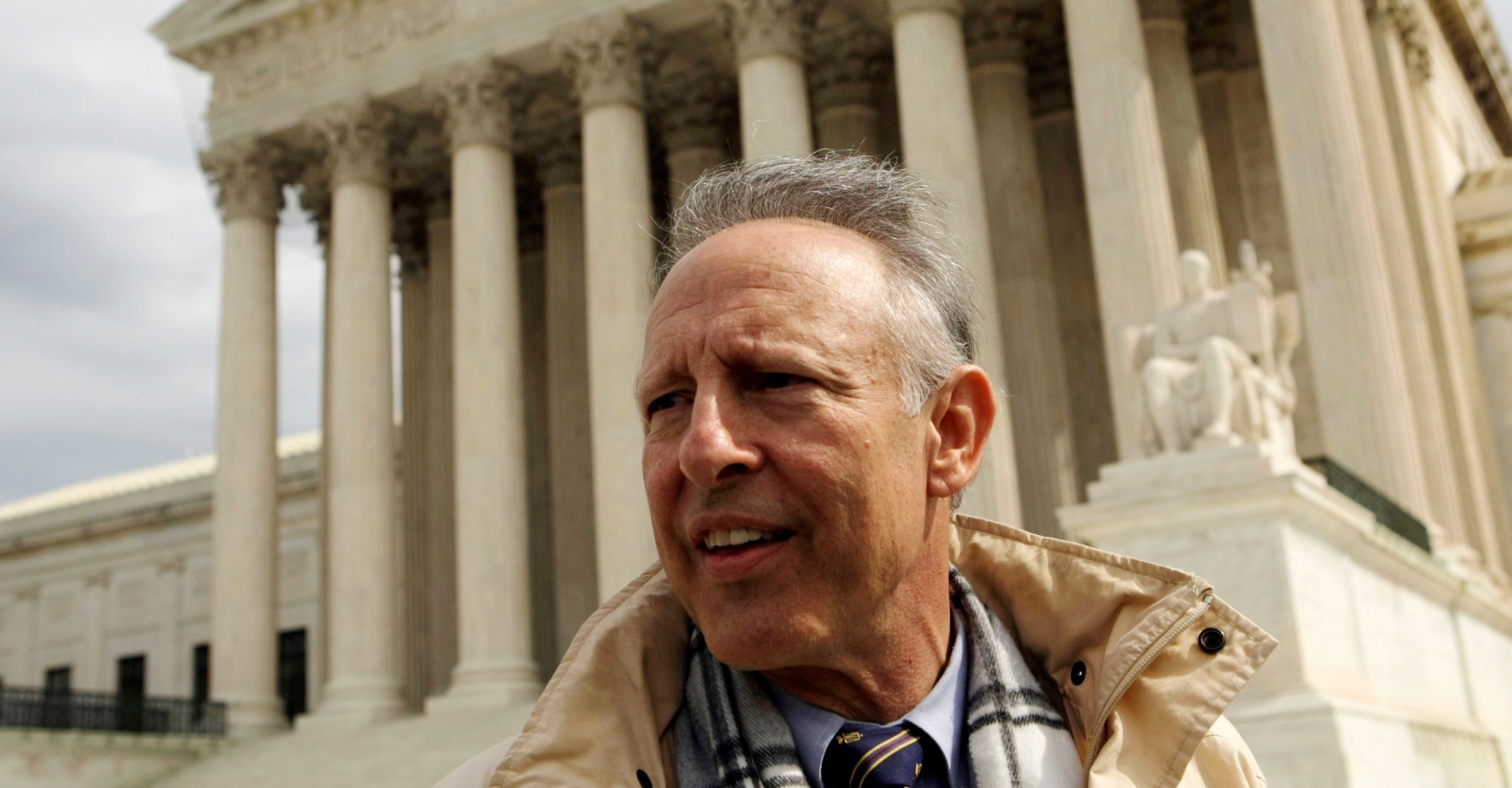The National Rifle Association, and its lawyers, draw a line straight from the founding fathers to the modern “good guy with a gun.” In their framing, people who arm themselves with lethal weapons to defend themselves, their families, and their communities do so with the blessing of the Constitution, as evidenced by the meaning of the Second Amendment.
But that understanding of the Second Amendment was enshrined by the courts only recently.
Ten years ago, on June 26, 2008, the late Supreme Court Justice Antonin Scalia delivered his landmark opinion in District of Columbia v. Heller, the case that established a constitutional right to own a gun for self-defense.
The decision struck down a Washington, D.C., law that banned handgun ownership within the district and required rifles and shotguns be stored disassembled and unloaded, effectively rendering them useless for home defense. In his majority opinion, Scalia held that self-defense was at the core of the Second Amendment, not the right of the people to form well-regulated militias, as courts had previously maintained. Scalia’s pro-gun jurisprudence was amplified when the court threw out a similar handgun ban in the 2010 case McDonald v. City of Chicago.
Yet Scalia’s opinion in Heller did not gut other gun laws. In fact, his decision has been cited by appeals court judges upholding assault weapon bans and local limitations on gun dealers. Except for the nearly identical McDonald case, the Supreme Court has not heard any other challenges to local gun laws in the intervening decade, declining to further expand gun rights.
Eric Segall, a law professor at Georgia State University who has written about guns and the Constitution, spoke with The Trace about the decision’s mixed legacy on its tenth anniversary.
Why hasn’t the Heller decision resulted in the overturning of most of the nation’s gun laws?
D.C. and Chicago had some important laws overturned, but overall the impact has been smaller than expected.
The answer is mostly because we have to go back to the first principles of constitutional law. It’s about balancing. The government limits a liberty in the name of public safety. A person says they want that liberty. A judge has to say which is more important. Most judges do not want to be responsible for second-guessing gun policy made by legislators that could lead to deaths.
Absent dramatic proof that those gun laws won’t do their jobs, judges want to stay out of this. Outside criminal cases, judges are rarely faced with life or death issues. These are life and death cases.
Was the NRA right to celebrate Heller as a legal triumph? Were prevention groups and Democrats right to fret over the opinion?
Heller was certainly a triumph for the NRA, and a hit to Democrats, even if it hasn’t been used to overturn many laws.
I don’t think anyone has done better than Judge J. Harvie Wilkinson III of the 4th Circuit, who wrote a law review article after Heller was decided that said it was a terrible decision. He wrote that it was going to unleash thousands of cases in the lower courts about who can own guns, where they can own guns, etc. Judges will have to make policy decisions, even though the political process is working.
Decisions like this lead to judicial interference in democracy. So much money is spent every time the NRA challenges a state or local gun law. Governments have to defend the laws they pass.
Judges have no more expertise than I do in gun rights and public safety. Absent the most flagrant, irrational laws, judges should stay out of it. And we don’t need the Second Amendment for that. Irrational laws could be struck down under normal constitutional principles.
The fallout in terms of laws struck down has been limited, but there has been substantial, expensive litigation. And no one knows how much Heller has deterred legislators from passing laws.
Further, when Chicago and D.C. imposed their bans, they studied the matter for years before they decided they were better off without handguns. Striking down those laws is serious stuff.
But it could have been worse. It will be worse if Justice Anthony Kennedy retires.
Could the right enshrined by Heller grow as more Trump-appointed judges apply the law?
In the lower courts, there’s no question that President Donald Trump has appointed judges much more sympathetic to the Second Amendment. That’s a huge deal.
As far as the Supreme Court is concerned, I think the reason the court hasn’t taken another gun case since McDonald is they don’t know what Justice Kennedy is going to do. I don’t think Kennedy knows what Kennedy is going to do.
As soon as Justice Kennedy retires and Trump appoints a replacement, the assumption is that the court will be much more hospitable to challenges to gun laws under Heller.
Have courts found that Heller protects anything beyond the right for non-prohibited persons to own guns in the home for self-defense? The right to carry outside the home?
D.C. had a law limiting how many guns you can buy, which an appeals court struck down. That’s pure insanity, the idea that you have a constitutional right to unlimited guns.
But the vast majority of lower courts have upheld gun laws. As a matter of constitutional law, thank goodness. They should leave this issue with voters. I feel the same way about abortion, even though I’m very pro-choice.


